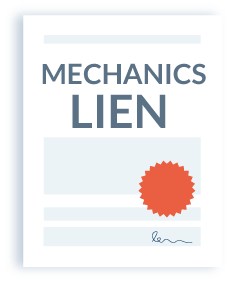
It doesn’t matter how good they are at their trade or how well they run their business — subcontractors have a tough time getting paid. Even if you finish a contract on time and under budget, you could still be waiting a very long time for your cash. One of the best ways to collect the money you earned is by educating yourself on subcontractor payment rights.
If you’re struggling to get paid, this guide will help you understand your options for collecting your cash.
Legally protected payment rights for subcontractors
Any way you cut it, subcontractors have the right to get paid for the work and improvements they make to real property. This right is so important, that many states and federal construction laws outline them specifically.
Here’s a breakdown of each of these legally protected rights.
Mechanics lien laws
Folks often marvel at how quickly a building can go up, but if they only knew how long it took those builders to get paid.
If a subcontractor is struggling to coax a check from their hiring party, they typically have the right to file a mechanics lien. These liens are the easiest and most powerful way to speed up payment, and they can make a huge difference to a company’s cash flow. But, it’s critical that subcontractors know and protect their lien rights.
In some states, contractors, subs, and suppliers need to send a preliminary notice to protect their lien rights. This document can serve as a friendly introduction to project owners and prime contractors. It also preserves the subcontractors’ rights to a mechanics lien in the event that they go unpaid for their work.
Subs should also realize that there are windows they need to act within. Each state’s rules are different, but in general, you’ll have a deadline from the date of last furnishing to file a mechanics lien (usually within 90 days). This can be a real challenge for some subs, as they spend much of that window waiting for a check to show up instead of taking action.
In many cases, the simple threat of a lien is all it takes for the prime contractor or project owner to cut a check. In those situations, sending a Notice of Intent to lien (NOI) will show the paying parties that you know your rights and that you aren’t afraid to file a lien if that’s what it takes to get paid.
See state-by-state guidelines and more in the Mechanics Lien Guide & FAQs — everything you need to know about mechanics liens.
Construction contract laws
Contracts involving construction projects are just as legally binding as any other contract. As such, there are repercussions for not holding up your end of the bargain. If you enter into an agreement to exchange work on a project in exchange for compensation, both you and the hiring party are legally responsible for your roles. You have to complete the work, and the hiring party has to pay the bill.
The problem arises when the hiring party doesn’t live up to the agreement. When it comes to regularly scheduled payments to a contractor or sub, they drag their feet or attempt to skirt the contract. In this case, the subcontractor may have the right to file one of the following legal claims:
Breach of Contract
When a party in a contract doesn’t perform their responsibility in a contract, the other party may be able to file a Breach of Contract claim. Breach of contract suits are fairly common in construction, as any deviation from the contract is technically a breach. Not paying the subcontractor is definitely a breach of contract.
Unjust Enrichment
An Unjust Enrichment claim may be available to subcontractors that go unpaid on construction projects. In these types of suits, unjust enrichment could be when one person in a contract benefits from another unfairly.
Does an owner benefiting from the improvement to the property without paying the subcontractor seem unfair? Then there’s a chance that an unjust enrichment claim could help recover payment.
Quantum Meruit
A quantum meruit suit sounds very lawyery, but the principle is actually quite simple. It can serve as a repercussion when a project takes place without a contract, and the hiring party refuses to pay for the work.
There are stipulations that the scenario needs to meet, but they’re relatively straightforward, making Quantum Meruit a feasible option for getting paid for money owed to you.
If you have questions about bringing a payment-related suit against a hiring party, consulting an attorney specializing in construction law should yield some answers.
Prompt Payment Law
Very often, slow payments are the result of upper-tier contractors not making payments to subs in a timely manner. This is too common in construction, as it’s such a cash-hungry business that prime contractors will sometimes shore up their bottom lines with the cash owed to subs.
There are statutes and laws that address this problem. Most federal projects, as well as many state construction laws, operate under Prompt Payment Laws.
These laws state that an owner or hiring party has a specific amount of time to pay the prime contractor. Once the prime contractor receives payment, these laws further dictate how long the prime can hold onto the cash before sending it down the chain to the subcontractors.
The rules vary a bit from state to state, but payment windows are usually pretty short. In most cases, upper-tier contractors need to pay their subs within 14 days (sometimes less). Federal projects are a bit longer, ranging between 15 and 30 days.
While these laws have the best intentions, they aren’t always incredibly effective at speeding up payment. There can be a lot of gray areas, especially when it comes to disputes and satisfactory work. That’s just the kind of wiggle room a contractor needs to hold onto cash a bit longer than the statute would normally allow.
It’s also important to know how to write an effective prompt payment demand letter — and what steps you can take if that demand is ignored.
How subcontractors can enforce their payment rights
Knowing your payment rights is just the first step. You also need to know how to enforce them to use them to your advantage.
File a mechanics lien
The easiest and most effective way to speed up the payment train is by filing a mechanics lien against the property. The lien will make the property less liquid and give the project owner a headache when it comes to securing further financing.
Even if the owner made the appropriate payments and it’s an upper-tier contractor holding onto the cash, filing a lien will get the attention of the parties in charge. It’s fast, effective, and by far the easiest way to get paid for money owed to you on a construction project.

File a lien now!
Levelset takes all of the guesswork out of the filing process. We’ll research the project information and ensure your claim is done right.
File a Breach of Contract claim
If, for some reason, you’re unable to file a mechanics lien, you could go the route of trying to recover your funds through a Breach of Contract claim. In other words, you need to bring a lawsuit against the offending party.
Unless you can go through small claims court, you’ll probably need a lawyer to pilot your lawsuit. Remember, lawyers are expensive, and the fees involved with filing a lawsuit can add up, so be sure the juice is worth the squeeze.
File a Prompt Payment claim
If you feel the amount of time it’s taking you to recover your cash violates the Prompt Payment Laws governing your contract, you do have the option of filing a Prompt Payment Claim in civil court.
Like a breach of contract suit, it’s a good idea to hire a lawyer to file a Prompt Payment claim. The good thing about consulting a lawyer is that they can help you understand whether your suit has merit and advise you of your best options, should a claim not make sense.
Read more: What Does a Construction Lawyer Do, and When Do I Need One?
Subcontractors are responsible for protecting their payments
When it comes to solving subcontractor payment problems, have to help themselves. While it’s the hiring party’s responsibility to pay the sub for their work, it’s the subcontractor’s responsibility to know and protect their payment rights.
Only the sub can take the action required to recover their cash. Luckily, there are powerful laws in place that subcontractors can leverage to ensure they get paid.
